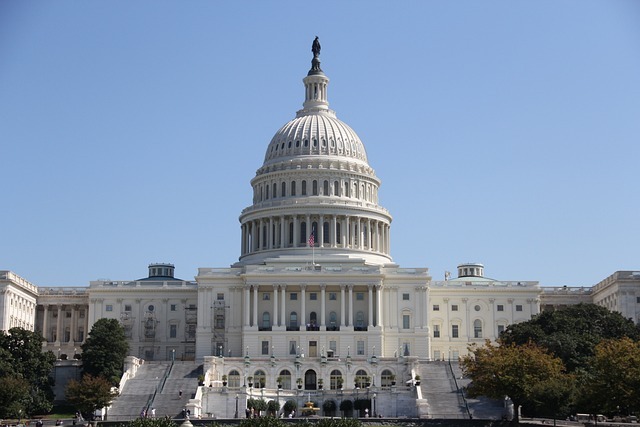Reflecting on 30 years since the signing of the accords.
Yoni Ben Menachem
(JNS)
Although the Oslo Agreement faced considerable challenges and ultimately failed to achieve its intended goals, the PLO and Israel have refrained from canceling it, recognizing its historical significance and the complexities of the region’s security situation over the past three decades.
Israel, in particular, made a strategic decision to maintain the Palestinian Authority’s governance in Judea and Samaria and cooperate with P.A. security organs in the ongoing fight against terrorism. However, the P.A. has frequently refused to counter terrorist groups in areas under its control, such as the case recently in Jenin and Nablus, infected by Iranian regime-affiliated terror cells. This places the entire counter-terrorism burden on Israel alone with its far-reaching security and diplomatic repercussions.
As we reflect on the 30 years since the signing of the Oslo Accords in September 1993 at the White House, it becomes apparent that while the accord aimed to establish a path towards an independent Palestinian state, the leadership of Yasser Arafat and later Mahmoud Abbas failed to halt acts of terrorism and incitement to violence, murder and subversion of Israel.
This realization prompted successive Israeli governments to view the Oslo agreement as a Trojan horse that inadvertently facilitated the movement of armed PLO terrorists into Judea, Samaria and the Gaza Strip.
Regrettably, deception characterized Arafat’s approach toward counterterrorism efforts.
His tactic of releasing terrorists and permitting groups like Hamas and Palestinian Islamic Jihad to carry out suicide attacks against Israel further destabilized the situation.
The Camp David summit of 2000 marked a critical turning point, as Arafat’s outright rejection of Israel’s proposals and U.S. President Clinton’s plan led to armed conflict.
Despite continued waves of terrorism and subsequent unrest, the P.A., now under the leadership of Abbas, has managed to sustain its position.
“Pay to slay” treachery
The P.A.’s dual role in providing financial support to terrorists’ families while coordinating security measures with Israel has threatened to undermine relations with Jerusalem.
However, recent events, such as the fighting in Jenin and the IDF’s “Operation Guardian of the Walls” in Gaza in May 2021, have revealed vulnerabilities in the P.A.’s security control in some of the areas it ostensibly controls, accompanied by internal struggles and economic hardships.
Despite the undeniable shortcomings and internal contradictions of the Oslo Accords, neither the PLO nor Israeli governments have officially terminated the agreement.
Instead, it persists, with the Israeli Defense Forces acting as a protective barrier for the P.A. in Judea and Samaria, preventing a scenario similar to the Hamas takeover of the Gaza Strip in 2007.
Israel’s current Netanyahu government has also chosen to preserve the P.A., preferring to maintain it in the broader fight against terrorism.
Prime Minister Benjamin Netanyahu even publicly recognized the P.A.’s role in this regard.
Numerous international players, including the United States, the European Union, Egypt, Jordan and other moderate Arab nations share concerns about the potential collapse of the P.A. They fear such an event could lead to security chaos and allow terrorist organizations to exploit the situation, ultimately destabilizing the region and bolstering Iran’s influence. The problem is Israel’s support of the P.A. delegitimizes Israel, in line with P.A. statements and actions in the international legal and diplomatic arenas.
Security coordination with the P.A. is central to the Oslo Accords’ importance from Israel’s perspective. This element remains intact even though Abbas has occasionally threatened to suspend it. The P.A. leadership knows that crossing this “red line” could have severe consequences for their relationship with Israel.
Recently, new armed terrorist groups, supported by Iran, have emerged in northern Samaria, presenting a significant challenge to the P.A.’s rule. These groups engage in terrorist activities against Israel while undermining the P.A. leadership’s authority.
Internal conflicts and the struggle for succession among senior Fatah movement leaders have further weakened the P.A.’s effectiveness.
Abbas’s advanced age and failure to achieve national reconciliation have also contributed to eroding the P.A.’s legitimacy.
In light of these circumstances, it is imperative for Israel to hold Hamas accountable for its ongoing terrorist activities from the Gaza Strip and to propose a viable political framework that could reignite negotiations between Israelis and Palestinians.
The transformation of the Gaza Strip into a hub of Islamic extremism following Israel’s withdrawal underscores the complexities of establishing an independent Palestinian entity in Judea and Samaria.
Strengthening local Palestinian rule
As the past 30 years have demonstrated, a more pragmatic and security-minded approach to stable relations with Palestinian leadership involves long-term local arrangements with seven Palestinian local governments. This approach could entail expanded autonomy within a framework that prioritizes enhancing security, with Israel assuming a central role and preventing the ongoing intensifying terror attacks on both sides of the 1967 lines.
Despite the failure of the Oslo Accords, there is still value to security coordination between Israel and the P.A, but neither Israel nor its friends and allies in the European Union and Washington can allow the P.A. to use this security coordination as a pretext to subvert, defame and delegitimize Israel politically and diplomatically, and by cynically misappropriating and distorting and weaponizing international law.
Originally published by the Jerusalem Center for Public Affairs.
Image: Israeli Prime Minister Yitzhak Rabin, U.S. President Bill Clinton and PLO head Yasser Arafat at the signing of the Oslo Accords, Sept. 13, 1993. Photo by Vince Musi/The White House.













